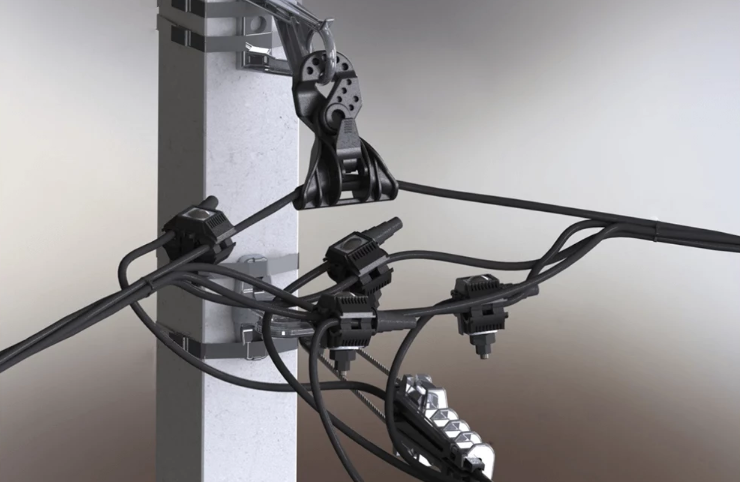An Insulation-Piercing Connector (IPC) is an advanced electrical component designed to establish secure and reliable connections by penetrating wire insulation without the need for stripping. This innovative technology ensures optimal electrical conductivity while maintaining the insulation’s protective integrity.
Widely utilized across power distribution, telecommunications, and automotive industries, IPCs are valued for their robust construction and ability to deliver consistent performance even in demanding environmental conditions.
Key Components of an Insulation Piercing Connector
The IPC system comprises several precision-engineered elements that work in unison to create durable, maintenance-free connections:
Shearhead – Ensures proper torque application
Stainless Steel Nut & Washer – Provides corrosion resistance
Upper/Lower Body – Forms the connector housing
Blade Teeth – Precision-designed to penetrate insulation
Waterproof Sealing – Protects against moisture ingress
Stainless Steel Bolt – Delivers mechanical strength
End Cap – Completes the environmental seal
This integrated design eliminates insulation stripping requirements while guaranteeing connection reliability.
Industry Applications
IPCs demonstrate exceptional versatility across multiple sectors:
Power Infrastructure
Overhead/underground distribution lines
Transformer connections
Street lighting systems
Telecommunications
Telephone line splicing
Fiber optic and coaxial cable junctions
Automotive & Industrial
Vehicle wiring harnesses
Battery connections
Motor control centers
Industrial switchgear
Technical Advantages
IPCs offer significant operational benefits:
✔ Efficient Installation – Eliminates time-consuming stripping processes
✔ Engineered Reliability – Maintains consistent contact pressure
✔ Environmental Protection – Waterproof and UV-resistant construction
✔ Universal Compatibility – Accommodates various wire gauges and materials
✔ Enhanced Safety – Reduces shock hazards during installation
✔ Cost Optimization – Minimizes labor and material requirements
✔ Durability – Withstands extreme temperatures and harsh conditions

Performance Validation Testing
IPC quality assurance involves rigorous testing protocols:
Type Testing (Design Validation)
Dielectric voltage verification
Salt fog corrosion resistance
UV radiation aging
Mechanical stress analysis
Thermal cycling (1000+ cycles)
Short circuit withstand capability
Routine Testing (Production Quality)
Visual and dimensional inspection
Marking permanency verification
Water immersion dielectric testing
Shear mechanism functionality
NFC 33-020 Compliance
The French NFC 33-020 standard establishes critical specifications for low-voltage IPC applications:
Design Parameters
Dimensional tolerances
Material specifications
Insulation penetration depth
Performance Requirements
Current-carrying capacity
Mechanical strength
Environmental resilience
Installation Guidelines
Torque specifications
Compatible conductor sizes
Mounting procedures
Premium Feature Highlights
Bimetal Compatibility – Certified for both AL/CU conductors
Corrosion Resistance – Stainless steel hardware components
Environmental Protection – UV-stabilized polymer housing
Long Service Life – Reinforced elastomeric seals
Certified Performance – Independent EU laboratory verified
